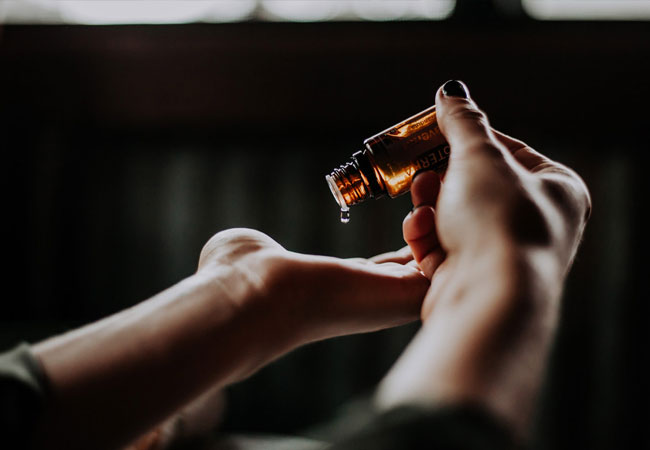From helping to clear your mind, to easing every muscle in your body, CBD as an industry is growing quicker than ever.
But there’s still plenty some people don’t know, which is why we’ve created our helpful and informative Knowledge Center – to answer any and all questions you might have.

WHY HEMP?
Hemp is a staple crop cultivated throughout North America and around the globe for thousands of years. It is an extremely versatile plant, growing in almost any climate, and producing foods, clothing, oils, and medicines. Human beings have been using and consuming hemp since at least the neolithic era right up until roughly the last century, when cannabis prohibition began.
What makes hemp unique from its intoxicating cousin, marijuana, is that hemp is closest to “wild crafted” cannabis. It its more natural state, cannabis is non-psychotropic — which is why hemp products can be sold both in stores and online. Hemp is also an excellent source of full-spectrum cannabinoids in their ancient, balanced state: high CBD / low THC.
HEMP VS. MARIJUANA: ARE THEY THE SAME THING?
Lawmakers know the difference between the two plants and you should, too.“Hemp” is the term used to describe the food and fibre variety of the cannabis plant, and “marijuana” is used to describe the drug variety of the cannabis plant. In order to be considered hemp in most countries, the plant must contain less than 0.3% THC — the primary psychoactive component in cannabis. Under this threshold, cannabis is defined as “hemp.” Above this threshold, cannabis is considered “marijuana.”
HEMP IS RICH IN ESSENTIAL FATTY ACIDS
Essential fatty acids have been extensively studied and are known to help maintain our brain and heart health, while helping to prevent conditions like arthritis and diabetes. Our bodies can’t make omega-3 and omega-6 fatty acids, so we need to regularly add them to our diets. The good news is—hemp contains both of these essential fatty acids—in abundance. It’s recommended that our diets include the right balance of omega-3 and omega-6, and few whole foods contain both. Hemp seeds are an easy way to get all of the essential fatty acids we need in one (delicious and versatile) source
FULL OF B VITAMINS AND MUCH MORE
There are eight B vitamins that we need to convert our food into fuel, and hemp boasts all of them. In addition to these essential nutrients, hemp also contains iron, manganese, magnesium and vitamin E. Add hemp oil to your morning breakfast, pre-workout smoothie or add it into your tea at the end of your day to balance your health routine.
WHAT IS CBD?
Cannabidiol (CBD) is a cannabinoid, an active compound unique to the cannabis plant. While there are nearly 100 different cannabinoids in cannabis, CBD is one of the most abundant. CBD one of the most amazing superfoods in and of itself and it is non-psychotropic, which means you won’t ever feel “high” from it.
Scientists first discovered CBD (and THC) in the 1930s, and to this day are still learning exactly how plant-based cannabinoids work in the human body. After years of prohibition, there is a lot of promising clinical research being conducted on cannabinoids, including CBD, but here is what we know so far about how they work.

CBD AND
MY BODY
When the endocannabinoid system was discovered, so were endocannabinoids — that is, cannabinoids that your body produces, naturally, for itself. The endocannabinoid system functions via two primary cannabinoid receptor types found on all your cells: CB-1 and CB-2.

CB1 – RECEPTORS
CB-1 receptors are found mostly on cells in your central nervous system. CB-1 receptors are favored by THC. THC “docks” at those CB-1 receptors in the brain, which is why people get a “high” feeling when they use recreational cannabis.
CB2 – RECEPTORS
CB-2 receptors are found mostly on cells in your enteric nervous system; that is, your immune system. CBD tends to like CB-2 receptors a bit more, but doesn’t really “dock” there. Instead, CBD “hangs out” near both CB receptors.
Sometimes CBD blocks the “negative” actions of THC, and sometimes it seems to stimulate the CB-2 immune receptor. This is why CBD is being studied for a variety of applications — it is extremely versatile — and why plant-based CBD is considered an adaptogen.
THE BENEFITS OF CANNABIDIOL (CBD)
Through ongoing scientific research, the powerful benefits of cannabidiol (CBD) is evolving at a rapid pace. Our understanding of CBD has increased exponentially since the 1980s, when researchers began to explore how cannabinoids interact with our key physiological processes, like our immune system. What they discovered was that cannabinoids actually interact with important receptors that help our bodies maintain overall health and balance.
CANNABINOIDS AS ADAPTOGENS
The lack of dietary cannabinoids over the last century (thanks to cannabis prohibition) follows a parallel path to the rise of metabolic and autoimmune dysfunction. While no reputable scientist would claim that a lack of dietary cannabinoids is the cause of chronic, modern health concerns, the reintroduction of a long-excluded plant could be a new weapon in our arsenal to return to healthier, more balanced states of being.
Adaptogenic antioxidants, which include cannabinoids, are “overachievers” that address holistic imbalances. CBD in particular is referred to as the “Boy Scout molecule” because it intuitively knows to do the right thing in any given situation, and multiple things at the same time — the hallmark of an adaptogen.
This could be the reason why supplementation with plant-based cannabinoids proves so wondrous for so many.
CBD IS NON—ADDICTIVE AND NON-TOXIC
A recent World Health Organization report, published in November 2017, revealed that CBD does not have potential for abuse or addiction and is completely safe for use—it has none of the psychoactive effects of its better-know cousin, THC. Many legal and illegal drugs bind to receptor sites in your brain, which can lead to tolerance and addiction. CBD functions differently—it acts as a modulator and regulator. Because of this, it’s also safe to stop using CBD at any point and not feel any withdrawal symptoms. CBD is non-toxic, even when consumed in large doses. To this day, no CBD-related overdoses have been reported.
HOW CAN I INTEGRATE CBD INTO MY LIFE?
Whether you’re looking for a drug-free and natural solution for a specific ailment, or seeking to reach optimal balance in your life, our hemp oil is a completely natural, plant-based option to explore.
Or before bed as you wind down Take it in the morning with breakfast or in a shake Mixed with a drink or glass of water Before or after a workout
Because it is completely non-psychoactive, you will never feel high, and can safely take it and still go about your usual day-to-day activities without feeling any side effects. many.

WHY
SUPPLEMENT WITH CBD?
You might be wondering: if our bodies make their own cannabinoids, why would anyone need to consume plant-based cannabinoids?
While endocannabinoids and plant-based cannabinoids share many similarities, they also have many differences. Endocannabinoids are produced “on demand” — exactly when needed. An example of endocannabinoids in action is when you get a papercut, and after the initial wave of pain the pain quickly dissipates. That’s the effect of anandamide, your body’s own “THC.”
(It’s a very good thing that plant-based cannabinoids don’t fully replace endocannabinoids, because it means your body can’t become chemically addicted to cannabinoids the way it can to opioids, which fully replace your body’s natural endorphins, resulting in opioid addiction.) When cannabinoids enter your body, your endocannabinoid system is “activated” — similar to how your car is “activated” by your key.
Or you can think of the endocannabinoid system like a “master thermostat” in your body. It appears to regulate everything from mood to appetite to pain perception to immune function to inflammation response to hormonal regulation to cardiovascular activity to metabolism control.
CBD FACT
Cannabinoids aren’t the only compounds that interact with your endocannabinoid system. Others including omega fatty acids, chocolate, black pepper, turmeric, dairy products, echinacea, and even carrots!
RELAX, EAT, SLEEP, FORGET, PROTECT
Overall, the endocannabinoid system seems to play a very “protective” role. The most important thing that the endocannabinoid system wants to protect is homeostasis — that is, making sure your body is running optimally at all times.
Because cannabinoids have an impact on so many fundamental bodily systems, research points to their overproduction or underproduction possibly being at the root of chronic metabolic, autoimmune, and essential neurological dysfunction.
OVERACTIVE ENDOCANNABINOID SYSTEM
Some researchers assert one can have an overactive endocannabinoid system, which then produces too much anandamide (remember, your body’s THC). Too much anandamide and you feel you’re in a constant state of hunger, which may be at the root of some obesity issues.
ENDOCANNABINOID DEFICIENCY
Some researchers have proposed an “endocannabinoid deficiency syndrome,” where a body doesn’t make enough endocannabinoids. This research speculates that a cannabinoid deficiency may be at the root of autoimmune conditions like lupus, rheumatoid arthritis, diabetes and more.


